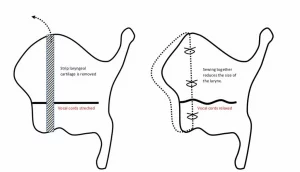Vocal tiredness or hoarseness after prolonged talking usually happens due to vocal strain, dehydration, or overuse of the vocal cords. The tiny muscles that control your voice can fatigue just like any other muscle in the body, leading to reduced clarity, loss of range, or a raspy tone.
| Common Cause | Description | Typical Effect on Voice |
|---|---|---|
| Overuse or loud speaking | Long periods of speech without rest | Hoarseness or loss of pitch control |
| Dehydration | Insufficient hydration of vocal folds | Dry, rough sound |
| Poor technique | Strain from incorrect breathing or projection | Fatigue and tension |
| Reflux or allergies | Irritation from acid or mucus | Swelling and vocal strain |
How Does Voice Fatigue Develop?
Your vocal cords vibrate hundreds of times per second during speech. Over time, this constant friction and impact can cause mild inflammation. Studies show that over 60% of professional voice users experience symptoms of vocal fatigue at some point in their careers. Teachers, performers, and call centre workers are especially at risk.
Contact Nick Hamilton Today on 020 7034 6053 or Book a Consultation
What Can Make Hoarseness Worse?
Talking in noisy environments, shouting, or whispering can all make fatigue worse. Poor posture and shallow breathing also increase strain on the throat and larynx. Persistent hoarseness lasting more than two weeks should always be assessed, as it may indicate inflammation, nodules, or another underlying vocal disorder.
How Can I Prevent My Voice from Getting Tired?
Maintaining hydration, using proper breath support, and resting the voice between long speaking sessions all help prevent fatigue. Voice therapy can teach you efficient techniques to reduce pressure and improve vocal stamina.
Simple steps include:
- Drinking plenty of water throughout the day
- Avoiding throat clearing and whispering
- Using amplification if you regularly speak to groups
- Taking brief periods of vocal rest
When Should I See a Specialist?
If your voice frequently becomes hoarse or you lose it entirely after moderate speaking, a voice specialist can assess for swelling, lesions, or muscular tension. Early assessment prevents chronic injury and promotes long-term vocal health.
To book a consultation with Mr Nick Hamilton at The London Clinic or One Welbeck, call 020 7034 6053.




